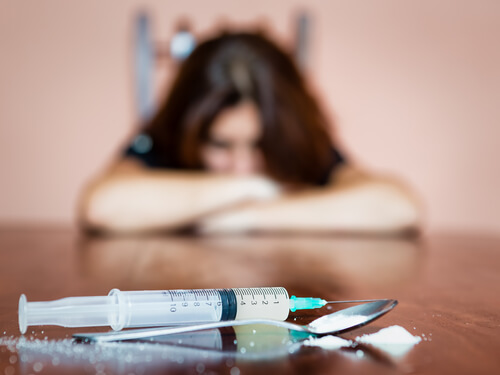Ricochet is the best place on the internet to discuss the issues of the day, either through commenting on posts or writing your own for our active and dynamic community in a fully moderated environment. In addition, the Ricochet Audio Network offers over 50 original podcasts with new episodes released every day.
 What is the Problem with Illegal Drugs?
What is the Problem with Illegal Drugs?
 My father was a cocaine addict who died of an overdose. He began using when I was about eight, and died when I was 24. He tried to quit a couple of times — twice he went into treatment centers — but he was not successful.
My father was a cocaine addict who died of an overdose. He began using when I was about eight, and died when I was 24. He tried to quit a couple of times — twice he went into treatment centers — but he was not successful.
I’ve spent a lot of time thinking about the problem of illegal and addictive drugs but have avoided drug-related threads because they’ve just been too painful to read. When I was younger and still considered myself a libertarian, I was very sympathetic to legalizing drugs. The “War on Drugs” is extremely expensive and its success is debatable. At this point, I’m just not sure which way is best. (For whatever it’s worth, according to this ngram, the phrase “war on drugs” didn’t become widely used until after 1980. Thanks to Mike H for that interesting link.)
Though — as I said — I haven’t followed all the arguments as closely as I should have, I think there’s a “supply and demand” aspect to illegal drug use that gets overlooked, mostly because both sides focus so much on the “supply-side” arguments, aruging either in favor of continuing or removing restrictions on the amount of drugs.
Is that the best way to look at the problem? In one sense, the cycle begins from the supply side: drugs have to be available before people can become addicted to them. But even if that’s where it begins, it must also be fueled and fostered from the demand side. Some people want to use harmful substances, or are compelled through addiction to do so. Suppliers will find a way to meet this demand. If people did not want to use harmful substances — or if they were not compelled by addiction — we would not have our current problems.
Might our energies be better spent if we focused on how to legitimately reduce demand? Keeping harmful substances illegal probably dampens demand, mainly by instilling fear of getting caught in those who might otherwise use the harmful substances. I think we can all agree that it would be good to reduce demand based on the free and willing choice of individuals to refrain from those substances. If we could radically reduce demand for drugs, our problem would be reduced if not solved.
I’m not necessarily looking for a proactive policy suggestion here, but I’m not excluding it either. I’m really just thinking out loud, mainly because if we misdiagnose the problem, our solutions will never be effective and its certain we will always be arguing over them.
I first floated this idea on Majestyk’s thread on the libertarian vision. In response, Midget Faded Rattlesnake asked a great question:
But to what extent is political policy a legitimate and effective tool for helping people to make this choice?
Ryan had this to say:
There are just so many factors contributing to why a person uses harmful drugs, it isn’t a problem with any easy (or even realistic) solution.
He is probably right. Then again, when I accept that there isn’t a realistic solution, I feel very sad.
What do you all think? Has our society misdiagnosed the problem? Is it more a supply-side problem, or one of demand?
Published in General



Could well be true. It certainly makes sense.
I can remember I’d get off the train to head home and I would find myself driving to the sports pub as a reflex, without ever deciding to actually do it.
I was. Hopefully, I was able to convey my message without minimizing the impact of drug abuse on a family. My main point was what you described as a problem is, in my opinion, a range of problems.